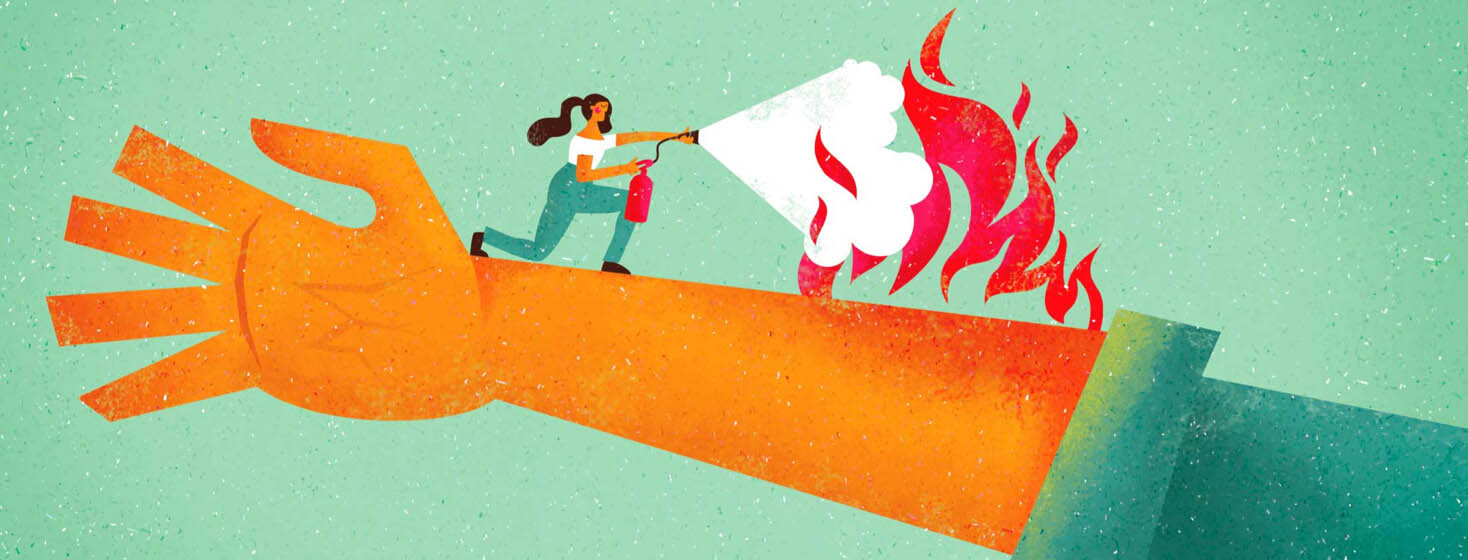Psoriatic Arthritis Flare Management Tips
We know the main symptoms of PsA include joint pain, stiffness, and swelling, and skin rash.
PsA is a chronic condition with no known cure, but symptoms can improve for a time or worsen. This worsening of PsA symptoms is known as a flare.
What are the early signs of a psoriatic arthritis flare?
There is no specific definition for a PsA flare, as symptoms can vary from patient to patient. Still, it is normal for PsA symptoms to improve and even, at times, go into remission—which means that symptoms are nearly nonexistent.
It is also normal and common for symptoms to worsen or flare-up suddenly. Even though symptoms of a flare can vary between patients, the most common signs include:
- Recurrence or increase in joint pain, swelling, or redness
- Worsening or reappearance of thick, red plaques on the skin
- Fatigue, difficulty concentrating, or depression
- Symptoms last for several days
What exactly causes a PsA flare?
For patients with PsA, immune system cells attack the healthy cells and tissue, and though it is n"t known exactly why this happens, there are things that can contribute to a flare of symptoms.
Triggers include:
- Stress: stress or anxiety is one of the most common triggers for a PsA flare
- Sickness or injury: infection or injury can increase the possibilities of symptoms in the affected area, but an overall weakened immune system, such as during a cold, can also contribute
- Missing medication: if a patient is prescribed medication to treat PsA, it should continue to be taken, even if symptoms have subsided. Otherwise, this can lead to a flare
- Lifestyle choices: smoking, obesity, or an unhealthy diet can all contribute to the worsening of PsA symptoms
Start a Forum
Tips for finding some relief
Sometimes treating a PsA flare is as simple as resuming missed medication or adjusting a prescribed treatment regimen. This may mean adding additional medication during a flare or switching medications if flares are becoming more common.
Doctors may also advise limiting activity for a time period. While light exercise may still be fine, trying to manage too much at once can increase stress levels, which can contribute to a flare. Home pain relief remedies may also be recommended for painful joint symptoms such as hot or cold compresses.
Heat therapy may help joint pain by relaxing and opening up blood vessels, which allows oxygen to move more freely, therefore reducing pain. Cold therapy, on the other hand, can relieve pain by reducing swelling and inflammation. So be sure to check with a doctor to see if and when such treatments are advised.
Featured Forum
View all responsesCan we prevent psoriatic arthritis flares?
Though flares are common in PsA, there are some things you can do to try and minimize or prevent symptoms from reappearing or worsening. It is helpful to be aware of your specific triggers and try to avoid them, if possible. Maintaining a healthy lifestyle through regular exercise and healthy eating also contributes to fewer flares.
If you are a patient with PsA, take care of yourself, and always reach out to your doctor if you have any problems or questions about your condition.

Join the conversation